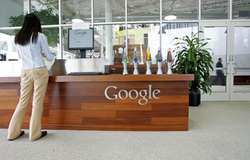 hi bloggers.... Mohali become one of the four cities in Punjab where traffic e-challan system was launched on Thursday. Besides Mohali — the only police district — Amritsar, Jalandhar and Ludhiana were the three commissionorates where the new system was introduced. The four cities were allocated 10 GPRS-enabled traffic e-challan terminals each for operation on a pilot basis. Punjab DGP Paramdeep Singh Gill launched the facility at a special function held at police station at Phase VIII in Mohali. He also inaugurated a new modern Police Control Room (PCR) established at a cost of Rs 1.8 crore. Speaking on the occasion, Gill said the e-challan system will help keep track of traffic violations and update system database through online/offline mode to retrieve any kind of reports. Under the system, police personal will issue challan on the spot and generate receipts electronically. The challan will carry all required fields and data inputs will be transferred to the central data online. Express News Service Tags : e challan system, traffic police , Police Control Room
 hi bloggers....
Multicore processors are everywhere. In desktop computing, it is almost impossible to buy a computer that does not have a multicore CPU inside. Multicore technology is also impacting the embedded space, where increased performance per watt presents a compelling case for migration.
Multicore technology is also impacting the embedded space, where increased performance per watt presents a compelling case for migration
Developers are increasingly turning to multicore because they either want to improve the processing power of their product, or they want to take advantage of some other technology that is 'bundled' within with the multicore package.
This article offers seven tips to help making that first step to using such devices
Read here for more :
http://www.eetimes.com/design/embedded-internet-design/4019865/7-Tips-for-Getting-Started-with-Multicore?Ecosystem=embedded
 hi bloggers.....
Pirated software may be cheaper than legal alternatives, but it's also chock-full of potential problems, and so people are realizing that it's in their best interest to avoid it.
That’s the central conclusion of a recent Microsoft survey of nearly 40,000 consumers in 20 countries that gauged perceptions about pirated software. According to the survey, 80 percent of consumers are worried about the risks of using counterfeit software, while 70 percent see genuine software as a more secure and stable alternative to pirated wares.
People in general are worried about the security implications of running pirated software, particularly data loss and identity theft from malware that's surreptitiously loaded onto their PCs during the installation process. However, many folks discover the hard way that they've bought illegal software when they load it on their PCs and find it won't activate.
There's a slight difference of opinion on how best to tackle the issue of counterfeit software and protect consumers: 65 percent of survey respondents believe the government should get involved, while 72 percent want to see software vendors take a more aggressive stance in tracing down pirates.
Interestingly, the survey makes no mention of the legal liabilities that consumers take on by running pirated software. The Business Software Alliance, an industry group that wields quasi-governmental powers when it comes to getting companies to submit to software audits, has been an aggressive enforcer for Microsoft and many other tech companies. The BSA doesn't generally go after consumers, but people that run pirated software still risk severe penalties if caught.
Microsoft estimates that up to one third of its customers worldwide may be running counterfeit copies of Windows, but antipiracy technologies such as Windows Genuine Advantage have previously flagged genuine users as pirates on several occasions.
In January 2007, Microsoft acknowledged that WGA had mistakenly identified more than half a million Windows users as software pirates. In August of that year, the validation scheme for Windows XP and Vista angered thousands of users by flagging legitimate versions of the OS as pirated, and causing some Vista users' copies to enter reduced functionality mode.
 hi bloggers....
NEW DELHI: Celebrating twentieth anniversary of Tim Berners-Lee's proposal for the World Wide Web, Google has launched an online interactive book that aims to teach the average person about the fundamental of browsers and the Web.
Called '20 Things I Learned About Browsers and the Web', the book explains concepts like, TCP/IP, HTML, browser extensions and malware.
Created by Google Chrome team using HTML5, the online book is a step-by-step explanation of the Web and how it works.
The focus of the book is on 19 different topics. Starting from "What Is the Internet?" it goes on to deal with topics like cloud computing, Web apps, Internet Cookies, Web programming languages, browsers, privacy, security and open source.
The book has illustrations by famous German illustrator Christoph Niemann.
In a blog post, Min Li Chan, Product Marketing Manager, Google Chrome, wrote, "For things you've always wanted to know about the Web and browsers but may have been afraid to ask, read on at www.20thingsilearned.com."
Read more:
Google's online book to teach you Web - The Times of India http://timesofindia.indiatimes.com/tech/news/internet/Googles-online-book-to-teach-you-Web/articleshow/6954312.cms#ixzz15jPrGcm5
 hi bloggers.....Google Inc. is launching a salvo against Facebook Inc., saying it will no longer allow the social network to grab information about Google users' social and professional contacts in Gmail, Google's email service.
Google has always allowed Google users to transfer data, including their contacts, to other websites. Until now, new Facebook users could find out whether their contacts on Gmail also had Facebook accounts, simply by typing in their Gmail user name and password as part of the Facebook signup process.
That Google policy has helped Facebook grow because it helped new users instantly create a network of friends on the site. Unlike Google, Facebook doesn't allow its users to export their contacts data to other websites.With Google becoming more and more interested in social networking and internally developing a competitor to Facebook, people familiar with the matter have said, it has called on Facebook to provide more access to user information.Chief Executive tly said Google hoped to get access to Facebook users' contact lists so that people can expand their social network on Google, though he added there were alternatives if Facebook didn't comply.
Facebook hasn't, leading Google to change its position this week. Google no longer allows Facebook to help users automatically export their Google contacts data as long Facebook continues to block Google from gaining the same access to Facebook contacts data with users' permission.
A Google spokesman said in a statement that its policy change reflects "the fact that users often aren't aware that once they have imported their contacts into sites like Facebook they are effectively trapped.
"We hope that reciprocity will be an important step towards creating a world of true data liberation—and that this move will encourage other websites to allow users to automate the export of their contacts as well," the spokesman continued.
Google users can always export their contacts from Gmail and other Google services to their computers in a machine-readable format, the spokesman said. Once they have done that, they can then import those contacts to Facebook.
A Facebook spokesman declined to comment.
Google's move, reported earlier by TechCrunch, can be seen as largely symbolic. It comes six years after Facebook's launch and the social networking site now has more than 500 million users, many of whom previously exported their Gmail contacts lists to Facebook.
In addition to competing on the social-networking front, Google and Facebook are expected to compete more heavily in the race to sell so-called display ads online. Read more: http://online.wsj.com/article/SB10001424052748704353504575596913266928110.html?mod=googlenews_wsj#ixzz14dZzL6ZD
 hi bloggers....
A new Internet search engine called which relies on recommendations from other users, has been launched and hailed as a ‘Google killer’. It filters out poor quality and irrelevant websites, which its founders claim have overrun the web and dominate search engine results,reports the ailyMail.
It works by using humans to pre-select the most useful sites on key topics and then limit searches to those alone.
So-called 'content farm' websites, which are manufactured to score highly on searches but have little real information will be weeded out, as will pornography and spam.
According to Blekko’s founder Rich Skrenta to goal is no less than to ‘clean up web search and get all the spam out of it’.On Blekko users can search using a word such as ‘global warming’ and come up with results as per usual.Where it differs is with the use of ‘slashtags’, or different words separated by a slash.If a user searches ‘global warming / green’ it would bring up only environmental websites to do with green groups or issues.
Similarly a search for ‘Paris Hilton /noporn’ would avoid any pornographic websites associated with the Hilton heiress.Blekko has also taken steps to be more open than Google.Next to every single search result is a small button marked ‘spam’ which allows the user to remove that website from their searches forever.And unlike Google, the search rankings are completely transparent and can be accessed by simply adding ‘rank’ as a slashtag.

Sony Ericsson will stop making smartphones featuring Symbian operating system (OS) to focus on Google's Android OS, according to a report by the Financial Times.
Bert Nordberg, CEO of Sony Ericsson, said it wanted to focus on Google's open source Android OS as the manufacturer released third quarter results, which showed a profit of €49m (£43m) for the quarter ending 30 September compared with a loss of €164m (£144m) in the same period last year.
"Our strategy to focus on the smartphone segment is succeeding and smartphones now comprise more than 50% of our total sales. During the quarter, we launched our Android-based Xperia models in new markets, such as China and the US, and it is our ambition to become the global number one handset provider on the Android platform," said Nordberg.
Roberta Cozza, analyst at Gartner, said Sony Ericsson's and Samsung's focus on Android OS leaves Nokia as the main driver of the open source Symbian OS. "There's no point continuing to develop on a platform driven so much by a competitor," he said.
"Symbian is not evolving as fast as other platforms on the market. It's not attractive to developers in terms of competitiveness. We'll need to wait for Symbian 4 in 2011 before we start to see something more exciting going on," Cozza added.
But Nokia's use of Symbian OS for low-end smartphones will leave the OS with "nothing to give at the high-end", she said.
Hewlett-Packard has hired ex-Nokia head of Meego operations, Ari Jaaksi, as a senior vice president of its new mobile operating system webOS, according to Reuters.
 hi bloggers.....
NEW DELHI: Adobe Systems India today launched a new range of its Acrobat software, aimed at helping enterprises create higher-quality content and drive collaboration and productivity.
Adobe offers various software solutions like Acrobat Reader, Photoshop, Illustrator , Portable Document Format (PDF), Shockwave Flash (SWF) and Flash Video (FLV).
"There is a greater need today for solutions that allow seamless collaboration in an open environment as companies work with their customers and partners in multiple time zones and languages," Adobe Systems India Country Head (Sales) Sandeep Mehrotra told reporters here.
Acrobat X would allow companies and governments to create, share, make PDF files interactive, while leveraging security and authentication features, he added. Mehrotra said the launch would help Adobe reinforce its position in verticals like government, education, financial services, manufacturing and IT/ITeS, among others.
The company will launch three products -- Acrobat X Standard, Acrobat X Pro and Acrobat X Suite. While Acrobat X Standard is expected to be priced at about Rs 14,000, Acrobat X Pro and Acrobat X Suite are expected to be available for about Rs 22,000 and Rs 58,000, respectively.
hi bloggers.....
Since its worldwide launch last year, the Ovi Store has been dishing out loads of applications, mobile games, videos, ring tones and images for Nokia devices. The service reaches 140 million users all across the globe with over 200,000 signing up each day to Ovi. With that covered, the company further reveals that the Ovi Store has hit the milestone of 2.3 million daily downloads.
The offering can be procured in over 190 countries and can be found via Music, Maps, Store and even Life Tools in some parts of the world. Nokia claims that 70 publishers and developers have also crossed the million download niche for their respective enticing content spread across the store. These include companies like Electronic Arts, Digital Chocolate, Indiagames, Qik, HeroCraft, Gameloft, PepsiCo, Shazam and Offscreen Technologies.
“At Nokia, we believe that connecting people with great mobile experiences is at the heart of what Ovi is all about,” commented Tero Ojanpera, executive vice president, Services, Nokia. “Today people discover Ovi through Maps, Music, Messaging, Store and Life Tools. With a new generation of amazing devices, like the Nokia N8, developers are looking at Ovi as a good business decision and a chance to innovate and create next-generation mobile experiences for our family of new Symbian smartphones.”
dnt 4get to add comments.....
hi bloggers..... Malicious software is slowly migrating from the PC on your desk to the smartphone in your pocket. And it’s finding a new business model there: premium calls and text messages. The latest target: Google’s Android operating system. Earlier this week Russian antivirus firm Kaspersky warned users of a strain of mobile malware that targets Android phones and masquerades as a movie player to trick users into downloading the software. The app then invisibly sends text messages to a pay-per-text Russian service, a far more direct method of digital crime than the multi-step process of stealing passwords and credit card numbers or turning a victim’s PC into a remotely controllable “bot.” According to mobile security firm Lookout, the text messages cost several dollars apiece. The new Android malware isn’t the first to use premium numbers to monetize an infected phone click here to read morednt 4get to add comments
|










 RSS Feed
RSS Feed